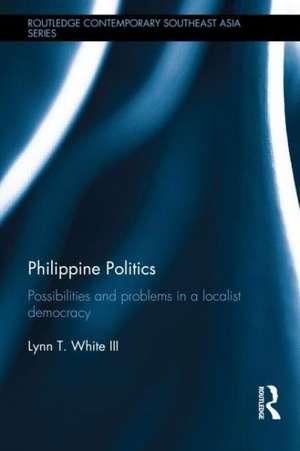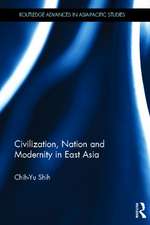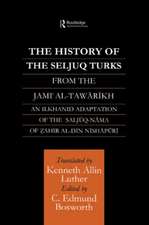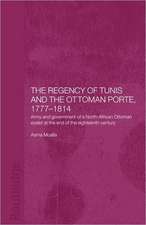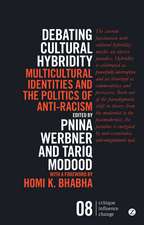Philippine Politics: Possibilities and Problems in a Localist Democracy: Routledge Contemporary Southeast Asia Series
Autor Lynn White IIIen Limba Engleză Hardback – 17 dec 2014
This book provides an interpretive overview of Philippine politics, and takes full account of the importance of patriotic Philippine factors in making decisions about future political policies. It analyses whether regional and local politics have more importance than national politics in the Philippines. Discussing cultural traditions of patronism, it also examines how clan feuds localize the state and create strong local policies. These conflicts in turn make regional and family-run polities collectively stronger than the central state institution. The book goes on to explore elections in the Philippines, and in particular the ways in which politicians win democratic elections, the institutionalized role of public money in this process, and the role that media plays. Offering a new interpretive overview of Philippine progress over many decades, the author notes recent economic and political changes during the current century while also trying to advance ideas that might prove useful to Filipinos.
Presenting an in-depth analysis of the problems and possibilities of politics and society in the Philippines, the book will be of interest to those researching Southeast Asian Politics, Political History and Asian Society and Culture.
| Toate formatele și edițiile | Preț | Express |
|---|---|---|
| Paperback (1) | 449.41 lei 6-8 săpt. | |
| Taylor & Francis – 22 ian 2018 | 449.41 lei 6-8 săpt. | |
| Hardback (1) | 1057.89 lei 6-8 săpt. | |
| Taylor & Francis – 17 dec 2014 | 1057.89 lei 6-8 săpt. |
Din seria Routledge Contemporary Southeast Asia Series
-
 Preț: 310.95 lei
Preț: 310.95 lei -
 Preț: 151.92 lei
Preț: 151.92 lei -
 Preț: 310.84 lei
Preț: 310.84 lei -
 Preț: 310.96 lei
Preț: 310.96 lei -
 Preț: 310.65 lei
Preț: 310.65 lei -
 Preț: 281.72 lei
Preț: 281.72 lei -
 Preț: 310.03 lei
Preț: 310.03 lei -
 Preț: 341.73 lei
Preț: 341.73 lei -
 Preț: 311.06 lei
Preț: 311.06 lei - 18%
 Preț: 1058.79 lei
Preț: 1058.79 lei - 18%
 Preț: 1111.51 lei
Preț: 1111.51 lei - 18%
 Preț: 1062.98 lei
Preț: 1062.98 lei - 18%
 Preț: 1057.75 lei
Preț: 1057.75 lei -
 Preț: 416.96 lei
Preț: 416.96 lei - 18%
 Preț: 1057.05 lei
Preț: 1057.05 lei - 41%
 Preț: 238.48 lei
Preț: 238.48 lei - 18%
 Preț: 1169.78 lei
Preț: 1169.78 lei - 18%
 Preț: 1056.28 lei
Preț: 1056.28 lei -
 Preț: 410.28 lei
Preț: 410.28 lei - 18%
 Preț: 1064.70 lei
Preț: 1064.70 lei - 18%
 Preț: 1060.52 lei
Preț: 1060.52 lei - 18%
 Preț: 1057.75 lei
Preț: 1057.75 lei - 18%
 Preț: 708.67 lei
Preț: 708.67 lei - 26%
 Preț: 821.10 lei
Preț: 821.10 lei - 18%
 Preț: 1106.02 lei
Preț: 1106.02 lei - 18%
 Preț: 1057.05 lei
Preț: 1057.05 lei - 18%
 Preț: 1060.87 lei
Preț: 1060.87 lei - 18%
 Preț: 1057.05 lei
Preț: 1057.05 lei - 25%
 Preț: 825.43 lei
Preț: 825.43 lei - 15%
 Preț: 707.79 lei
Preț: 707.79 lei - 18%
 Preț: 1062.62 lei
Preț: 1062.62 lei - 18%
 Preț: 1280.80 lei
Preț: 1280.80 lei - 25%
 Preț: 824.17 lei
Preț: 824.17 lei - 18%
 Preț: 1004.34 lei
Preț: 1004.34 lei - 26%
 Preț: 820.56 lei
Preț: 820.56 lei - 18%
 Preț: 1064.01 lei
Preț: 1064.01 lei - 18%
 Preț: 736.24 lei
Preț: 736.24 lei - 18%
 Preț: 1167.71 lei
Preț: 1167.71 lei - 18%
 Preț: 1220.42 lei
Preț: 1220.42 lei - 26%
 Preț: 848.03 lei
Preț: 848.03 lei - 18%
 Preț: 1057.05 lei
Preț: 1057.05 lei - 18%
 Preț: 1057.75 lei
Preț: 1057.75 lei - 18%
 Preț: 1053.92 lei
Preț: 1053.92 lei - 18%
 Preț: 1060.52 lei
Preț: 1060.52 lei -
 Preț: 428.63 lei
Preț: 428.63 lei -
 Preț: 385.25 lei
Preț: 385.25 lei - 18%
 Preț: 1057.75 lei
Preț: 1057.75 lei - 18%
 Preț: 1060.87 lei
Preț: 1060.87 lei
Preț: 1057.89 lei
Preț vechi: 1290.10 lei
-18% Nou
Puncte Express: 1587
Preț estimativ în valută:
202.48€ • 208.66$ • 170.94£
202.48€ • 208.66$ • 170.94£
Carte tipărită la comandă
Livrare economică 03-17 martie
Preluare comenzi: 021 569.72.76
Specificații
ISBN-13: 9781138828049
ISBN-10: 1138828041
Pagini: 280
Ilustrații: 2
Dimensiuni: 156 x 234 x 20 mm
Greutate: 0.54 kg
Ediția:1
Editura: Taylor & Francis
Colecția Routledge
Seria Routledge Contemporary Southeast Asia Series
Locul publicării:Oxford, United Kingdom
ISBN-10: 1138828041
Pagini: 280
Ilustrații: 2
Dimensiuni: 156 x 234 x 20 mm
Greutate: 0.54 kg
Ediția:1
Editura: Taylor & Francis
Colecția Routledge
Seria Routledge Contemporary Southeast Asia Series
Locul publicării:Oxford, United Kingdom
Public țintă
PostgraduateCuprins
1. Local Regimes: An Introduction 2. Malay Foundations and Colonial Semi-Modernizations 3. Clan Feuds Localize Political Violence 4. Entrepreneurs as Politicians 5. Marcos, Failed Centralization, and Land from the Tiller 6. Law of Rule, Power of Separations 7. Populist Rituals and Elite Reformism 8. Voting, Pork, Policy, and Media 9. Corruption 10. PNoy, "Pacquiaos," and Philippine Progress
Notă biografică
Lynn T. White III is Professor Emeritus and Senior Research Scholar in the Woodrow Wilson School, Politics Department, and East Asian Studies Program at Princeton University, USA.
Recenzii
The Philippines is a large country (its population exceeds 100 million) divided into many small parts (over 7,000 islands and 42,000 administrative villages), which are often further split into clans controlled by rival oligarchs—and then fractured yet again by feuds within those clans. Although the country’s national institutions are strong on paper, White finds that the local trumps the national, as clientelism and violence work their way up to the very top of the system. Money, undue influence, and violence permeate the executive branch, Congress, and the judicial system, leading to stagnation and polarization in the country’s economy and politics. An active civil society and occasional eruptions of “people power” have done little to change the Philippine way of politics. White’s analysis of these problems is comprehensive. Writing before the election of Rodrigo Duterte to the presidency last year, White correctly predicted that the modest reforms introduced by the previous president, Benigno Aquino III, were unlikely to last.
Reviewed by Andrew J Nathan, Foreign Affairs
Reviewed by Andrew J Nathan, Foreign Affairs
Descriere
Philippine political history challenges the image of democratic evolution as serving the people, and does so in ways that reveal inadequately explored aspects of many democracies. This book provides an interpretive overview of Philippine politics, and takes full account of the importance of patriotic Philippine factors in making decisions about future political policies. It analyses whether regional and local politics have more importance than national politics in the Philippines. The book goes on to explore elections in the Philippines, and in particular the ways in which politicians win democratic elections, the institutionalised role of public money in this process, and the role that media plays.
